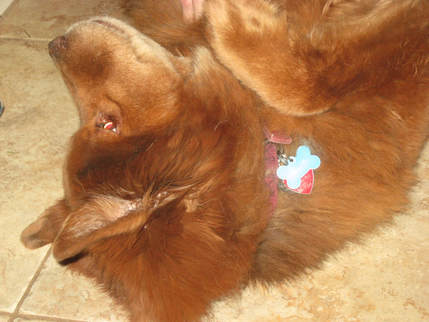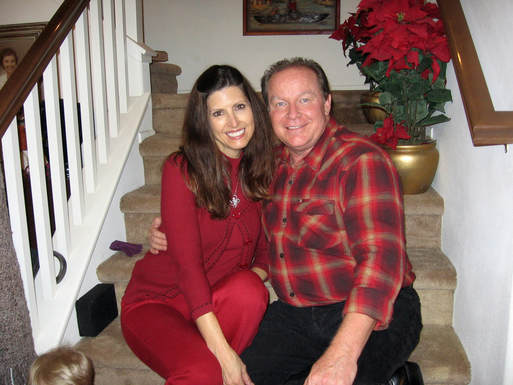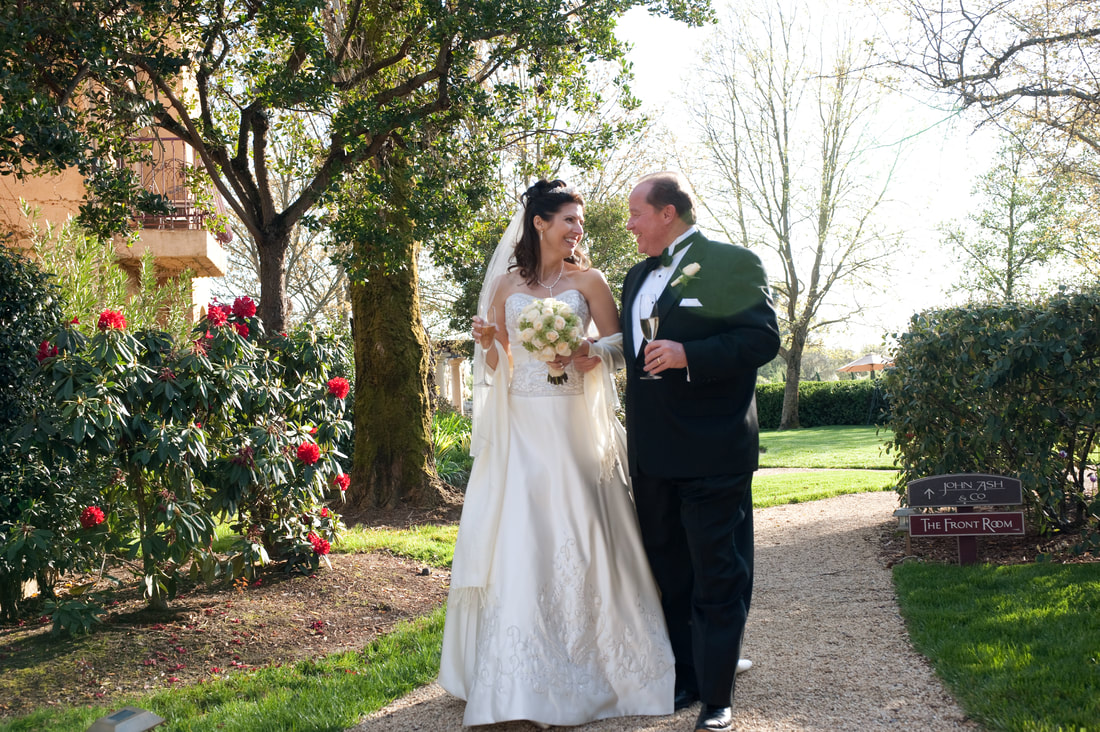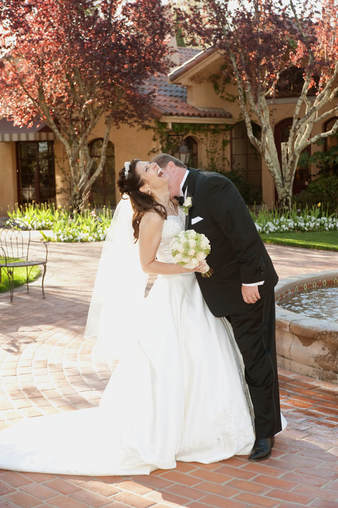
No one ever tells you what it’s really like. They don’t tell you the about the shock that consumes you cell by cell, front to back, top to bottom, like the slow motion, mushroom-cloud explosion of the bomb. They don’t tell you about the confounding, dumbfounding disbelief in the moment when you realize…this is really happening, and it’s happening to me. They don’t tell you because they can’t – it doesn’t translate. Nothing can prepare a person for the surreal experience of the loss of a loved one. Consequently, there is a strange separation of self that occurs: one part watches, observing as if from another dimension, while the other part fights for each precious, lifesaving moment that slips away like glass under clawing fingers. It just happened they were my fingers that slipped and punched and slammed down the touchscreen phone for not working when it was most needed. They were my eyes that watched the love of my life dying before me, and I could do nothing to stop it. His heart had stopped. Why did mine still beat? It was inconceivable, unbelievable, and untenable. My mind kept asking, “How can I still be here when he is not?” Death, and its comrades in arms, shock and grief, inhabit battlegrounds and invade bedrooms like egalitarian commandos. There is a saying, “the greater the loss, the deeper the grief.” For me, none was greater than the loss of my husband, the man who I had been looking for my whole life, the love of my life. Grief is a personal process, and though there are definitive stages that people go through, no two will experience it exactly the same. Richard’s death set me on a journey that encompassed mind-numbing shock, deep, soul-rending grief, and eventually, launched me like a cannonball right onto the upward spiral of personal growth - a surprise I never saw coming.
But first, there was the shock. For forty-five minutes I stood there, staring at the bedroom door numbly watching the parade of policemen, firemen, and paramedics go in and out, all the while remaining motionless. Shock often presents itself as numbness, disbelief and an inability to focus. I experienced all three. They kept me waiting in the living room, while behind closed doors the paramedics worked to revive my husband. I stared. Just there, I thought, on the other side of that door, was my heart and soul, lifeless on the floor. I was bizarrely calm, outwardly holding it together, following instructions, politely staying out of their way, while inside I was quietly cracking apart. It was like watching a death scene in a movie with the sound off, and over the course of the night, I silently watched my shock transform to disbelief.

It is odd that in the face of insurmountable evidence how stubbornly shock and disbelief linger. Once I came home from the hospital, where he was officially pronounced “dead,” a part of me thought, “Maybe I can just go to sleep, and when I wake up I’ll find this was all a dream, a very bad dream.” The next morning came, and I still couldn’t believe it. I felt disconnected from everything having to do with this three-dimensional reality; it was hard to stay focused and follow conversations: my brain felt fuzzy. Yet, the trumpet of responsibility sounded reveille, and it was time to make decisions: pick a casket, choose a mortuary, secure the gravesite, design the grave marker, decide the order and content of the service, the flowers, the when, where, and who…it was like planning a wedding for a dead person who will never enjoy it, and all those who are there, are not enjoying it. I know why we do it. We do it to comfort ourselves and others, to show respect, to honor the deceased, and to create a space for the sharing of grief. And though I was not ready to share my grief with anyone outside of my immediate family, fate had another agenda. I had recently posted my resume online, and was in the middle of job hunting. Within three weeks of Richard’s death, I received a phone call inviting me to interview for the perfect job. I asked for a small reprieve, explaining about my recent tragedy, and asked for a little more time to get my head together. They did wait, and I did get the job, which was a godsend – I really needed the money, more than ever. However, it was incredibly difficult to stay focused at work. So new, so fresh was the wound that my mind would often drift to relive recent memories made nostalgic before their time. (In fact, all of our memories were recent; we’d been married less than a year.) During those first few months, I kept my office door closed because grief will have its way, and at any time during the day I would start sobbing uncontrollably. Shock had turned to grief, and it engulfed me.
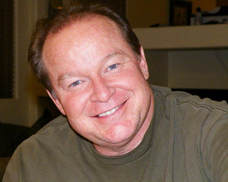
It was then, as my sorrow began to overwhelm me, manifesting in a tumult of tears, and talking out loud to myself in public places, that a fresh fearlessness I’d never known before began to surface. Staying in the same house Richard and I had shared as husband and wife unsheathed a double-edged sword; everywhere I looked were reminders of him, of us. I’d catch a glimpse of his photo on the dining room buffet, then knees would buckle, and I was on the floor, sobbing inconsolably. It was then a small little miracle happened, and this welcomed comfort came in the form of four-legged fur. When Richard passed, his two dogs passed to me. Bear was a mixed breed: half Chow and half Golden Retriever. Bear, the dog, was, shall we say, conflicted. He expressed equally the Golden’s “love me, love me, pet me, love me” tail waggling, fur ball of doggy joy tempered by the Chow’s chip-on-the-shoulder attitude that said, “Go ahead, tell me ‘no’ just one more time, and I’ll snap!” But when it came to consoling me, never did more love pour forth from that slobbering pink tongue than when Bear tried to cheer me up with wet kisses. As I lay there, a crumpled mess on my dining room floor, crying and laughing, (it was hard to distinguish the two at this point) I would talk to Richard. I started talking out loud to him almost from the beginning.
Whether it was the shock of his death, or the simple comfort I derived in doing so, I talked to him as if he were still alive. He was not only my husband and the love of my life, he was my best friend, and we talked about everything. It seemed natural to just keep doing so. I have to admit, in hindsight, it was funny. You know, in a “we’ve got a camera hidden in the canned goods, and we’re catching all this on tape” game show kind of way. Picture me shopping at the grocery store, and carrying on a conversation with Richard, out loud, (he being conspicuously absent) or laughing at something that only he and I would think funny about canned peas. I could hear his voice in my head so clear. I imagined those around me must have thought I was like one of the poor souls we see patrolling the sidewalks talking intently to people who aren’t there. (In the days before Bluetooth, this was odd behavior, believe me.) The fact that he was no longer physically present didn’t seem to matter. This must have been where the fearlessness kicked in. My attitude became “after what I’ve been through, nothing can hurt me – nothing can touch this pain.” What people thought of me no longer mattered. I would speak my mind without mitigation. I became more authentically me, more real than I had ever allowed myself to be before. I also knew that expressing this pain in a healthy way was important to my healing. So, I channeled this newfound “can’t touch this” courage, and started blogging about it. I called it, “There You Are.”
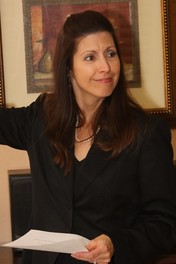
By sharing some of my day-to-day challenges, and ensuing insights in a blog, I created not only this cyberspace of healing for myself, but for our grieving friends and family, who also missed Richard terribly. I know that for women, talking about our lives and challenges can be healing. We use language, and its logic, to work through our problems. Dr. John Gray discusses this in his book, “Men are from Mars, Women are from Venus.” Where men tend to go within, into their “cave” to problem solve, women, in contrast, need to talk it out – for me this was crucial. Writing about my daily challenges and conquests, from mowing the lawn to putting up the sunscreens around the house, brought back a sense of balance, equilibrium and personal power that I had lost. In losing my husband, who had become the central focus of my life, I found my center.
Richard’s death brought me to an understanding of myself, what I was capable of doing, and who I was capable of being. Living through tragedy brought insights I could never have foreseen, and I am still learning from it. It’s been ten years since his death, and with every day that passes I recognize, and rely on, many of the changes it induced in me. I will never be the same person I was before his death, but I don’t think I am supposed to be. It is natural that life and death experiences challenge, and ultimately, change us. The trajectory of transformation that transported me from shock and grief to personal growth of this magnitude is nothing short of a miracle in my eyes – eyes that will miss his until the day I die.
Richard’s death brought me to an understanding of myself, what I was capable of doing, and who I was capable of being. Living through tragedy brought insights I could never have foreseen, and I am still learning from it. It’s been ten years since his death, and with every day that passes I recognize, and rely on, many of the changes it induced in me. I will never be the same person I was before his death, but I don’t think I am supposed to be. It is natural that life and death experiences challenge, and ultimately, change us. The trajectory of transformation that transported me from shock and grief to personal growth of this magnitude is nothing short of a miracle in my eyes – eyes that will miss his until the day I die.
© 2018-2020 by Colleen Dunn Saftler all rights reserved
